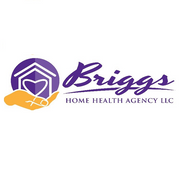How to Talk to a Parent When Dementia Makes Them Forget Their Children

As a child of a parent with memory loss, it can be devastating when you realize they don't recognize you. It might happen occasionally at first and then become more frequent, and it's easy to feel like you've lost your mom or dad even though they're still physically here. When loved ones start needing Alzheimer's or dementia care, they may exhibit changes in their behavior, mood, and demeanor alongside memory loss, leaving you unsure of how to interact. Although this diagnosis can feel heartbreaking and inconceivable, it doesn't mean your relationship with a parent has to be severed. Here's a closer look at how to talk to a loved one during those moments when they don't know who you are.
3 Tips for Talking to a Loved One Who Doesn't Remember You
1. Introduce Yourself
Alzheimer's or dementia can impact the ability to recognize faces and recall names. Rather than assuming they will recognize you when you visit, try introducing yourself as soon as you walk into the room. Greet your loved one and indicate who you are and what your relationship with them is. You can even specify connections, such as your chronological order among your siblings, to clarify. This doesn't guarantee they will recognize you if they're having a bad day, but it may help them place you better.
2. Gently Navigate Memories

While it's wonderful to reminisce about your favorite memories with a parent, they may not be able to recall past experiences the way you can. To help conjure fond memories from the past, try asking broad questions and let your loved one drive the conversation.
You can use old photographs or videos to help trigger recollection. Although they may not always be able to recall every memory, the time and effort you put into spending time with them will help strengthen your relationship in this chapter of life and dementia care, which can lead to new memories.
3. Use Improvisational Skills
Improvisational skills keep the flow of dialogue going with "yes, and" rather than saying "no," which abruptly challenges the current situation. For a parent with memory loss, correcting or questioning them can make them feel confused, frustrated, or angry. Using improvisational skills, on the other hand, improves personal interactions and confidence, keeping the dialogue going alongside a loved one who may be seeing things from an altered reality they believe to be true.
When your loved one needs Alzheimer's or dementia care, experience and quality of care are paramount. For more than 20 years, Briggs Home Health Agency has provided residents of Norfolk, VA, with exceptional in-home health care. This licensed, bonded, and insured senior care agency offers round-the-clock services, including light housekeeping, medical reminders, personal care, and more. Whether a loved one needs short- or long-term care services, they are able to receive customized support for everything from daily activities to eating, grooming, and meal prepping. To learn more about their caregivers, RNs, LPNs, and nursing assistants and how they can help someone you love, visit them online or call (757) 628-1011.
About the Business
Have a question? Ask the experts!
Send your question

